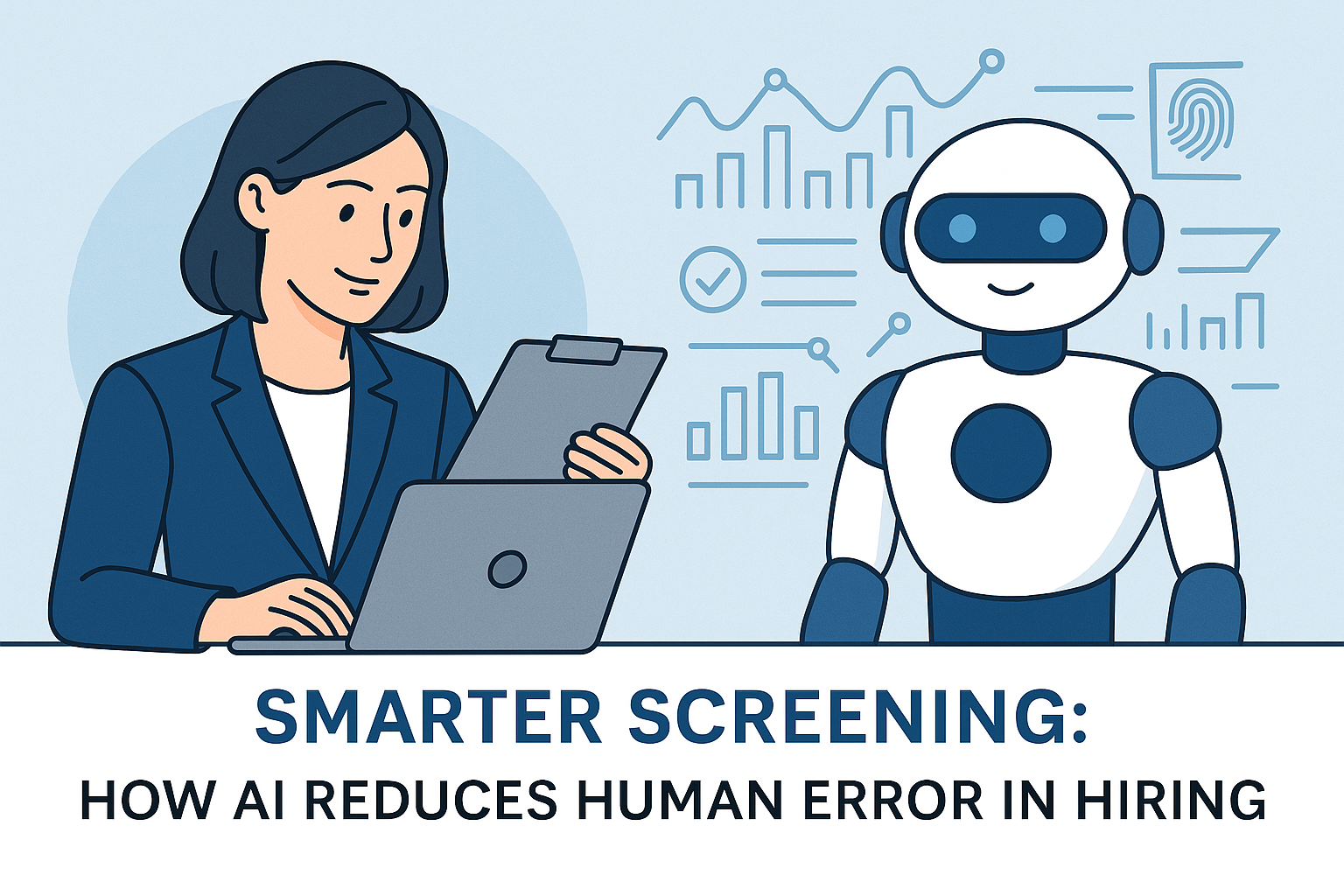
Human error has always been one of the biggest challenges in background screening. From data entry mistakes to overlooked inconsistencies, even small errors can lead to major hiring issues. Fortunately, advances in Artificial Intelligence (AI) are helping employers minimize these risks — improving accuracy, consistency, and compliance across the entire screening process with the integration of AI in background screening.
1. Automating Data Validation and Cross-Checking
Traditional background screening often involves manually entering and verifying data from multiple sources — a process prone to human mistakes. AI-powered systems can automatically validate applicant information, cross-check records, and flag inconsistencies instantly, thus enhancing AI in background screening practices.
This automation reduces manual data errors and helps ensure every report is based on verified, accurate information.
2. Enhancing Accuracy in Employment and Education Verification
Verifying a candidate’s work and education history can be time-consuming and error-prone. AI-driven verification tools can automatically compare submitted credentials with verified databases, professional networks, and past employment records. Such AI in background screening ensures greater precision and helps HR teams focus on decision-making instead of data collection.
This ensures greater precision and helps HR teams focus on decision-making instead of data collection.
3. Consistency in Screening Decisions
Human interpretation can vary from one screener to another, leading to inconsistent hiring outcomes. AI algorithms apply consistent logic and evaluation criteria across all background checks, eliminating bias and variability in how results are interpreted. This consistency is another benefit of using AI in background screening.
When paired with human oversight, AI ensures fairness and objectivity in every hiring decision.
4. Real-Time Error Detection and Compliance Monitoring
AI can instantly detect missing data, mismatched records, or compliance violations before reports are finalized. These systems can also automatically ensure adherence to the Fair Credit Reporting Act (FCRA) and local hiring laws, helping companies stay compliant without added administrative burden. Indeed, AI in background screening streamlines compliance monitoring.
Resource Links:
- Fair Credit Reporting Act (FCRA): https://www.ftc.gov/legal-library/browse/statutes/fair-credit-reporting-act
- EEOC AI Guidelines: https://www.eeoc.gov/select-issues-artificial-intelligence
5. Supporting Human Expertise, Not Replacing It
While AI automates many aspects of the screening process, human expertise remains vital. Trained screeners are still needed to interpret complex cases, provide context, and ensure that automation aligns with ethical and compliance standards.
At The Screening Source, LLC, we use advanced technology to enhance — not replace — human judgment, ensuring each background check is both accurate and responsible.
Conclusion: A Safer, Smarter Future for Hiring
By reducing human error, AI helps employers make faster, more accurate, and more compliant hiring decisions. The result is a background screening process that’s not only efficient but also more reliable and fair.
As AI continues to evolve, companies that adopt these technologies early will lead the way in safer hiring and better workforce management. Embracing AI in background screening represents a critical innovation for future-proof hiring practices.
Learn more: https://www.thescreeningsource.com/contact
